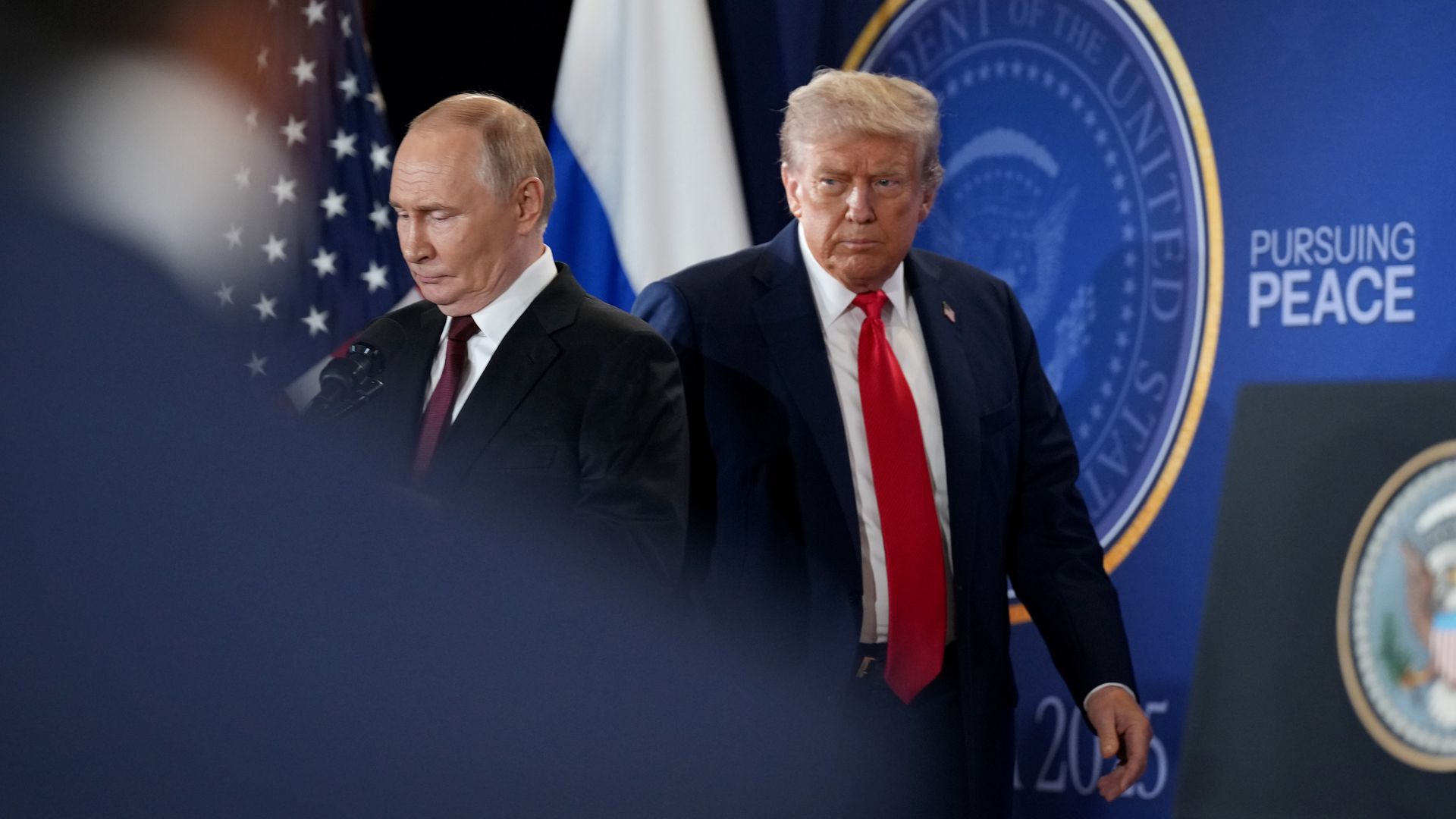Russia is erasing our memories of a peaceful life

A residential building damaged in a fire caused by a Russian aerial strike overnight on Oct. 10, 2025, in the Pecherskyi district of Kyiv, Ukraine. (Kateryna Hodunova/The Kyiv Independent)

Kateryna Hodunova
Nothing rattles you like the quiet ping of a morning message from your mother that says, "A drone fragment hit the building in your grandmother's courtyard."
My grandmother Tamara and her brother Viktor live in a picturesque neighborhood in Kyiv's downtown, on a boulevard named after one of Ukraine's foremost writers — Lesya Ukrainka.
I spent my childhood there, surrounded by beautiful architecture, where memories of historic events were woven into every corner.
One of those buildings features a 43-meter mural by Australian artist Guido van Helten. It shows a girl in a vyshyvanka, a traditional embroidered blouse, and many locals see her as a symbol of Lesya Ukrainka herself.
On Oct. 10, a fragment of a Russian Shahed-type drone hit the building where Viktor lives. My grandmother's building is right next to it. By chance, both of them are alright.

Viktor's apartment was spared because the drone struck the opposite side of the building. My grandmother's building escaped serious damage, though several of her neighbors had their windows blown out.
Not everyone was that lucky. Russia's overnight attack killed a child and injured at least 24 people in the country. Another tragedy for a family that never should have witnessed war.
Since the full-scale invasion began, I have witnessed a lot of destruction. It is always hard to swallow.
But today Russia hit a different nerve. It hit the memory of a peaceful life of the past that we had lost.
Nearly five floors of the 17-story building were scorched black after the explosion. Only the window frames and shattered balconies remained. Nine people were injured in that specific attack, some of them were hospitalized, though fortunately, none were in serious condition.
Residents recalled an eerie silence before the impact. Then, a powerful explosion — and for a few seconds, everything was flooded with blinding light.
After finishing my reporting at the site, I walked over to see my grandmother.
She greeted me as if nothing had happened, asking right away if I was hungry and whether I wanted to have lunch. I am convinced she always has something to feed guests with — even when she says she didn't prepare anything. As the tea was brewing, she calmly continued to reply to messages from friends and colleagues who had recognized the familiar building on the news.

Sitting in my grandmother's kitchen, I kept thinking: Russia does not just want to destroy us — it wants to erase our memories of peace. It wants us to forget that life without war ever existed.
In this courtyard, I took my first steps, rode a bicycle for the first time, and regularly scraped my knees on the playground.
This is the house where I played with our German Shepherd, Santa, learned to read, and wrote my first stories, not knowing that those early scribbles would one day lead me to the journalism faculty.
We celebrated birthdays, New Years, and Easters here. Some of my childhood belongings are still in the closet, as are dozens of photo albums filled with moments that shaped who I am now.
And all of it — every memory, every object — could have been lost today, along with the people I love.
Russia wants to take all of it away, to simply cause more pain and suffering.
My grandmother, nonetheless, seemed not worried about the situation and had already made plans to buy fresh cottage cheese from her friend in the courtyard hit by the debris. Like nothing had happened.
That is what helps me hold on — the quiet persistence of life. It gives me hope that one day, hopefully soon, we won't have to witness Russian attacks and forget about the need to check to see if everyone you love has made it through the night.
Editor's Note: The opinions expressed in the op-ed section are those of the authors and do not purport to reflect the views of the Kyiv Independent.











